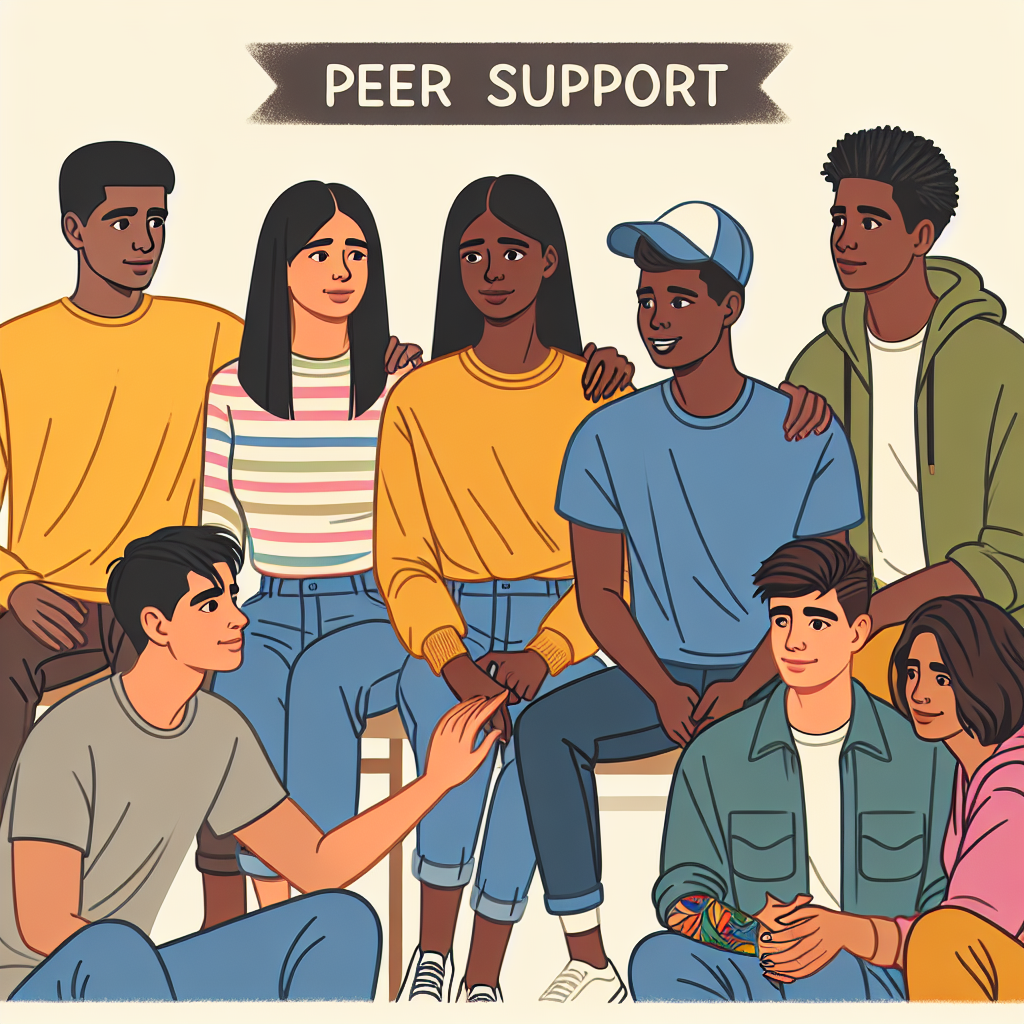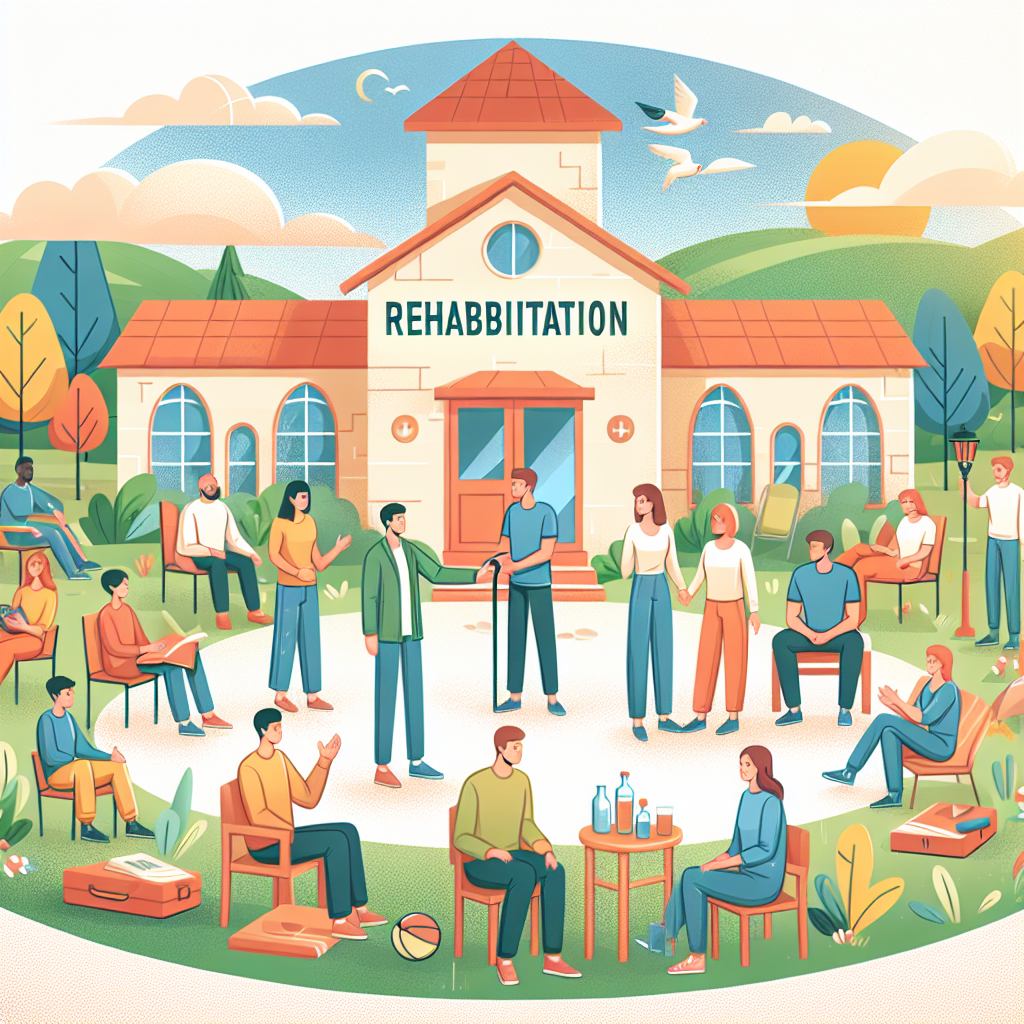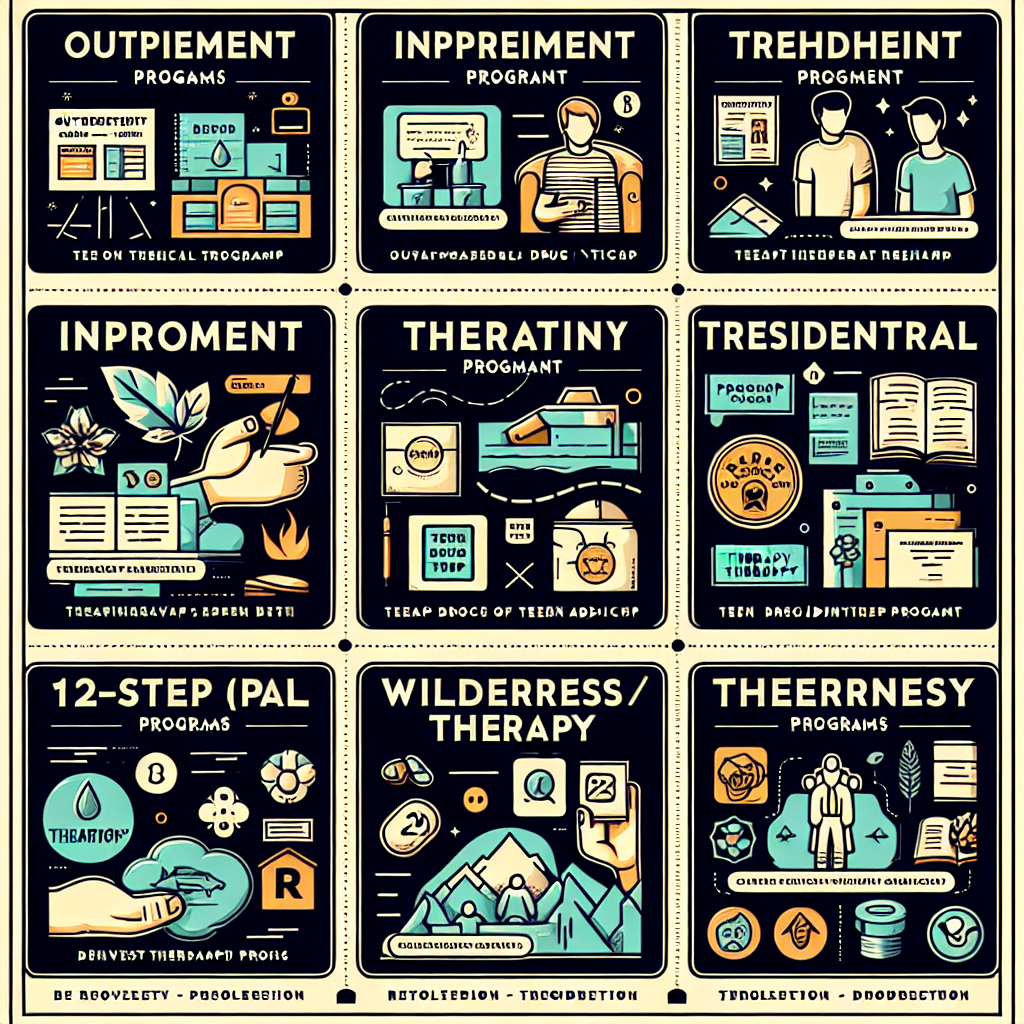-
Table of Contents

“Empowerment Through Connection: Thriving Together in Young Adult Rehab Programs”
Introduction
Peer support in young adult rehab programs offers numerous benefits that significantly enhance the recovery process. By fostering a sense of community and shared experience, peer support helps individuals feel less isolated and more understood. This mutual understanding and empathy can lead to increased motivation and engagement in the program. Additionally, peer support provides practical advice and coping strategies from those who have faced similar challenges, promoting resilience and long-term recovery. The collaborative environment also encourages accountability and positive behavior changes, while reducing stigma and promoting mental health awareness. Overall, peer support is a crucial component in the holistic approach to rehabilitation, contributing to improved outcomes and sustained recovery for young adults.
Enhancing Recovery Outcomes Through Peer Support in Young Adult Rehab Programs
In the journey of recovery, young adults often face unique challenges that can make the process particularly daunting. The transition from adolescence to adulthood is a critical period marked by significant emotional, social, and psychological changes. When substance abuse or addiction is added to the mix, the path to recovery can seem even more overwhelming. However, peer support has emerged as a powerful tool in enhancing recovery outcomes for young adults in rehab programs. By fostering a sense of community, understanding, and shared experience, peer support can significantly improve the chances of sustained recovery.
One of the primary benefits of peer support in young adult rehab programs is the creation of a supportive community. Young adults often feel isolated and misunderstood, especially when dealing with addiction. Peer support groups provide a safe space where individuals can connect with others who are facing similar struggles. This sense of belonging can be incredibly comforting and can help reduce feelings of loneliness and alienation. When young adults realize they are not alone in their journey, they are more likely to stay committed to their recovery.
Moreover, peer support offers a unique form of understanding and empathy that is difficult to replicate in traditional therapeutic settings. While therapists and counselors play a crucial role in the recovery process, they may not always fully grasp the lived experiences of young adults struggling with addiction. Peers, on the other hand, have walked a similar path and can offer insights and advice that resonate on a deeper level. This shared experience fosters a sense of trust and relatability, making it easier for young adults to open up and engage in meaningful conversations about their struggles and triumphs.
In addition to emotional support, peer groups can also provide practical guidance and strategies for navigating the challenges of recovery. Young adults can share coping mechanisms, discuss triggers, and offer tips for maintaining sobriety in social situations. This exchange of knowledge can be incredibly valuable, as it equips individuals with a toolkit of strategies that have been tested and proven effective by their peers. Furthermore, seeing others successfully manage their recovery can serve as a powerful source of inspiration and motivation.
Another significant advantage of peer support is the opportunity for young adults to develop leadership skills and a sense of purpose. As individuals progress in their recovery, they can take on mentorship roles within the group, offering support and guidance to newer members. This not only reinforces their own commitment to sobriety but also instills a sense of responsibility and self-worth. By helping others, young adults can find meaning and fulfillment, which are essential components of a successful recovery journey.
Furthermore, peer support can help bridge the gap between rehab and the outside world. Transitioning from a structured rehab environment back into everyday life can be challenging, and many young adults struggle with maintaining their sobriety during this period. Peer support groups can provide a continuous source of encouragement and accountability, helping individuals stay on track even after they have completed their formal treatment. This ongoing support is crucial for preventing relapse and ensuring long-term recovery.
In conclusion, peer support plays a vital role in enhancing recovery outcomes for young adults in rehab programs. By fostering a sense of community, providing empathetic understanding, offering practical guidance, and creating opportunities for leadership and purpose, peer support can significantly improve the chances of sustained recovery. As young adults navigate the complexities of addiction and recovery, the power of shared experience and mutual support can make all the difference in their journey towards a healthier, more fulfilling life.
Building Resilience and Community: The Role of Peer Support in Young Adult Rehabilitation
In the journey of overcoming addiction, young adults often face unique challenges that can make the path to recovery particularly daunting. However, one powerful tool that has proven to be immensely beneficial in young adult rehab programs is peer support. This approach not only fosters resilience but also builds a sense of community, which is crucial for long-term recovery.
Peer support involves individuals who have experienced similar struggles coming together to share their experiences, offer encouragement, and provide mutual aid. This shared understanding creates a bond that is both empathetic and empowering. For young adults, who are often navigating the complexities of identity, relationships, and future aspirations, having peers who truly understand their struggles can be a lifeline. It is through these connections that individuals can find the strength to persevere.
One of the primary benefits of peer support in young adult rehab programs is the development of resilience. Resilience, the ability to bounce back from adversity, is a critical component of recovery. When young adults see their peers overcoming similar challenges, it instills a sense of hope and possibility. They begin to believe that if others can succeed, so can they. This belief is not just theoretical; it is reinforced through real-life examples and shared stories of triumph over adversity. Consequently, this shared resilience becomes a collective strength that propels the entire group forward.
Moreover, peer support fosters a sense of community, which is often lacking in the lives of those struggling with addiction. Addiction can be an isolating experience, leading individuals to feel disconnected from their loved ones and society at large. In a peer support setting, young adults find a safe space where they are accepted without judgment. This acceptance is crucial for building trust and opening up about their struggles. As they share their journeys, they form meaningful connections that combat the isolation and loneliness that often accompany addiction.
In addition to emotional support, peers can offer practical advice and coping strategies that are grounded in lived experience. This practical guidance is invaluable because it comes from a place of genuine understanding. For instance, a peer who has successfully navigated the challenges of returning to school or finding employment after rehab can provide insights that are both relevant and actionable. This type of support is often more relatable and impactful than advice from professionals who may not have firsthand experience with addiction.
Furthermore, peer support can enhance the overall effectiveness of rehab programs by creating a more engaging and participatory environment. When young adults feel that they are part of a supportive community, they are more likely to actively participate in group activities, therapy sessions, and other program components. This increased engagement can lead to better outcomes, as individuals are more invested in their recovery process.
The inspirational aspect of peer support cannot be overstated. Witnessing peers who have transformed their lives serves as a powerful motivator. It reinforces the idea that recovery is not just a distant dream but an achievable reality. This inspiration can ignite a sense of purpose and determination, driving young adults to stay committed to their recovery goals.
In conclusion, peer support plays a vital role in young adult rehab programs by building resilience and fostering a sense of community. Through shared experiences, practical advice, and mutual encouragement, young adults find the strength to overcome addiction and build a brighter future. The bonds formed in these peer support settings create a foundation of trust and understanding that is essential for long-term recovery. As young adults navigate the challenges of rehabilitation, the power of peer support can be the beacon of hope that guides them towards a healthier, more fulfilling life.
Q&A
1. **Question:** How does peer support in young adult rehab programs enhance recovery outcomes?
**Answer:** Peer support in young adult rehab programs enhances recovery outcomes by providing emotional support, shared experiences, and a sense of community, which can reduce feelings of isolation and increase motivation for sustained recovery.
2. **Question:** What role does peer support play in the development of coping skills in young adult rehab programs?
**Answer:** Peer support plays a crucial role in the development of coping skills by allowing young adults to learn from others who have successfully navigated similar challenges, thereby gaining practical strategies and confidence to manage their own recovery journey.
Conclusion
Peer support in young adult rehab programs offers numerous benefits, including enhanced emotional support, increased motivation, and improved social skills. It fosters a sense of community and belonging, which can significantly reduce feelings of isolation and stigma. Peer support also provides practical advice and shared experiences, which can be more relatable and impactful than professional guidance alone. Additionally, it encourages accountability and sustained engagement in the recovery process. Overall, integrating peer support into rehab programs can lead to better outcomes and a more holistic approach to recovery for young adults.



